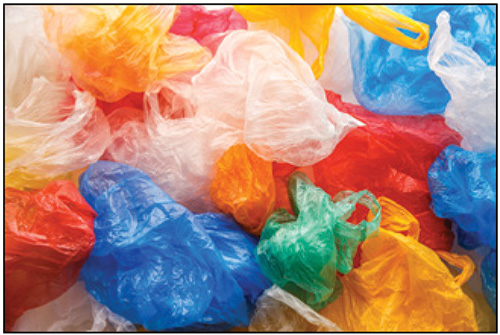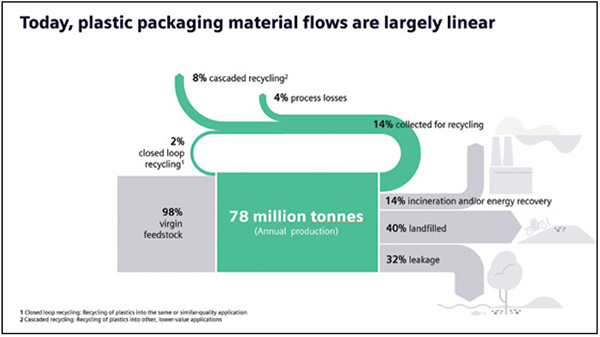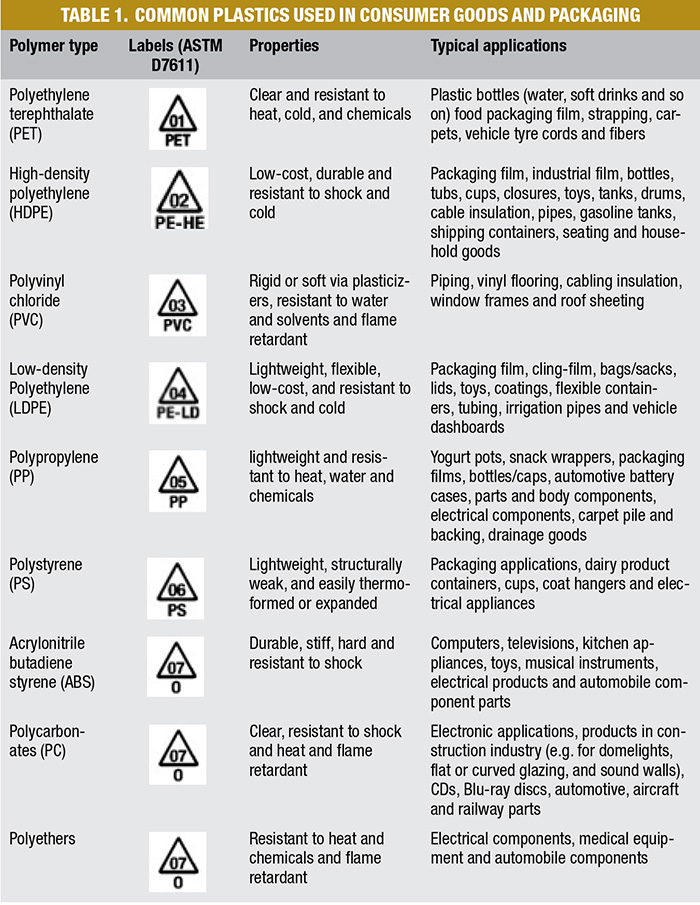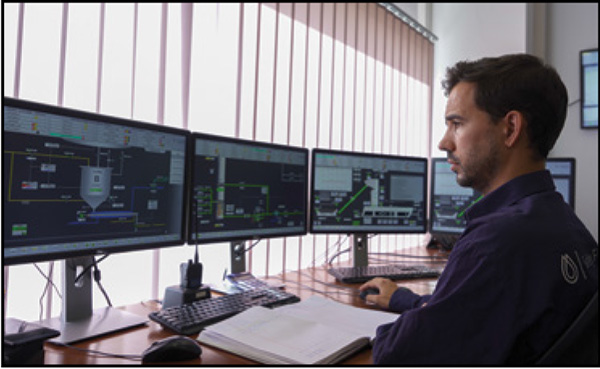The following case study discusses a novel chemical recycling process for converting plastic scrap into valuable material
Sustainability has become one of the main drivers for innovation. Among the critical sustainability issues is the recycling of end-of-use plastics. The diversity of different types of plastics presents problems for mechanical recycling processes, but chemical recycling approaches can offer a pathway to complement mechanical recycling and help turn plastic waste into a resource.
The plastic waste problem
Because plastics are versatile, durable, lightweight and incredibly adaptable, they are used in a wide range of applications in product packaging, housing, automotive and many others. The success of plastics is partly a result of their low cost, but also from their versatility to meet highly demanding functional requirements. Plastics production has significantly increased over the last few decades, both in terms of amount, and also variety. Thousands of different types of plastics with highly specific product attributes have been developed to fulfill different demands.

FIGURE 1. The volume and diversity of plastics creates environmental problems for disposal
With this boost in plastic production and diversity, the challenge of disposal has arisen, as plastic durability renders it a serious problem for the environment: end-of-life of plastics contaminate waterways, appear on shorelines and pollute areas on land (Figures 1 and 2). An analysis by the Ellen MacArthur Foundation [1] states that roughly one-third of the world’s plastic packaging waste ends up in the oceans or in unmanaged dumps on land. From collected plastics, more than 50% is landfilled or incinerated, meaning valuable resources are disposed of in unsustainable ways.

FIGURE 2. The diagram shows how post-use plastics are currently used
Plastic as feedstock
The situation calls for a feedstock change for future plastic production: using recycled oils, biomass or even CO2, rather than fossil petroleum. Plastic waste has the potential to be a resource, with dedicated procedures for recycling that tackle the global challenges of disposal and benefit the circular economy. Public pressure and government policies can incentivize companies to explore the development of more sustainable recycling solutions with low carbon emissions.
Mechanical recycling of plastics, in which material is ground and re-granulated, is an option, but has major limitations. Chief among them lies in the fact that several types of plastics (Table 1) simply do not mix. So the scrap plastic needs to be sorted to serve as input material for new products Mechanical recycling also mainly accepts monolayer plastics, rather than multilayer, which is one of the most common types used in packaging. In addition, most mechanically recycled plastics are downcycled and cannot be used to create food-grade packaging, with the exception of PET (polyethylene terephthalate) bottles.

Novel chemical recycling
For plastic waste that cannot be mechanically recycled, such as films and flexibles, chemical recycling, in which polymer chains are chemically cleaved, can overcome some limitations of mechanical recycling operations.
An example of this is from Plastic Energy, a London-based company that has focused on closed-loop chemical recycling technologies. Plastic Energy has developed a solution that leverages this waste; the company has developed a unique and patented chemical-recycling technology using a thermal anaerobic-conversion (TAC) process to treat plastics that cannot be mechanically recycled.
“The TAC recycling process converts plastic waste into a valuable substance called TACOIL, which serves as a feedstock to produce new plastics, even suitable for food-grade packaging (Plastic2Plastic). TACOIL can be used in petrochemical crackers as a replacement for fossil oils in the manufacturing of virgin-quality plastics, which benefits the circular economy,” explains Carlos Monreal, CEO at Plastic Energy.
In Plastic Energy’s process, plastics are heated in an oxygen-free atmosphere to create hydrocarbon gases, which are then condensed. Working diligently with petrochemical partners, Plastic Energy can create the optimal output that meets the specifications of petrochemical crackers for the manufacture of new plastics. As a result, the virgin-quality recycled polymers created can be used by converters and brands in the same applications as virgin polymers.
Plastic Energy can process multilayer plastics, such as films and flexible packaging, with no need to separate by type or color, making it a complementary approach to mechanical recycling.
With two recycling plants in constant operation in Spain, Plastic Energy has incorporated Siemens automation software and hardware to help ensure the smooth running of its system.
Automation challenges
Since the TAC recycling process is a relatively new technology, it is continually evolving, and Plastic Energy is implementing improvements for better efficiencies and product quality. Due to the variable types of plastic feedstock that Plastic Energy accepts, there can be adverse effects on the processing plant. Having predictive analysis done on the process to preempt issues and dealing with them in a timely manner is important to keep the recycling plants running efficiently (Figure 3). Therefore, control strategies have been implemented to make these improvements using Siemens PCS7 capabilities.

FIGURE 3. Predictive analytics software can pre-empt issues in plastics recycling plants
Siemens technology is used to give Plastic Energy the flexibility and scalability for its plant designs. Software modules for smart field-device management and maintenance provide the ability to manage plant assets seamlessly to optimize reliability.
There are also instrumentation-related challenges that Plastic Energy has faced over the past several years for unique process conditions. The company is working closely with Siemens to find new solutions to meet process requirements.
With years of experience in processing end-of-life plastic, Plastic Energy’s chemical recycling plants are operating at a commercial and industrial scale. The company maintains a technology development roadmap for the next designs to achieve larger scale, better products, lower cost, and lower environmental impact [3].
Chemical recycling is complementary to mechanical recycling, and when used in conjunction, can be an effective and circular way to reduce the impact of plastic leakage into the environment, and prevent plastic waste being sent to landfills or incinerators or exported to developing nations without the proper waste management infrastructure. The technology developed by Plastic Energy, with the incorporation of Siemens automation hard- and software, is being implemented in various facilities all over the world.
Edited by Scott Jenkins
Editor’s note: The content for this column was originally developed by Martina Walzer, manager of technical concepts at Siemens AG (www.siemens.com), based in Karlsruhe, Germany, and Daniel de Sousa, the engineering manager at Plastic Energy Ltd. (www.plasticenergy.com), based in the U.K.
References
1. https://ellenmacarthurfoundation.org/the-new-plastics-economy-rethinking-the-future-of-plastics
2. IChemE Global Awards 2020
3. Plastic Energy Sustainability Report, August 2021